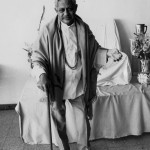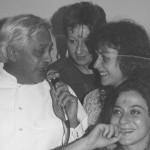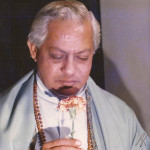 So if you want to die, die, but don’t be dependent, because death is a form of independence itself. Temporarily, because you’re going to carry all that forward with you, all your doings. And that is how ethics and morality started. Thou shall do this, and thou shall do that, and thou shall not, and all that. And, of course, that is also man‑made, also man‑made to conform with the present society that you live in.
So if you want to die, die, but don’t be dependent, because death is a form of independence itself. Temporarily, because you’re going to carry all that forward with you, all your doings. And that is how ethics and morality started. Thou shall do this, and thou shall do that, and thou shall not, and all that. And, of course, that is also man‑made, also man‑made to conform with the present society that you live in.

You’re free as the bird, and the bird flies in freedom. Yet there’s a system to its flying. There’s a system inborn within them that during winter months they would fly in a different direction, and summer months in another direction. That kind of freedom we are talking about. That inside you, you know just what to do. And you do it right, if you are free. Therefore in Sanskrit there’s a word, the Jivanmukta: to be liberated while you are still in the body. Not after you are dead. That liberation does not matter. We want liberation here and now.
That’s what a poet does, he’s liberated in his poem where he flies to the higher skies and he goes down to the lowest depths.

«Where the moon can’t reach, the poet can reach» because he can reach the light as well as the darkness. He’s free to reach that. But still greater than that.
And that is a man of experience, the experienced person that has imbibed the nectar of life. He reaches everywhere.And that comes from a developed awareness. And you become so aware that you do not think or be concerned about the person that has passed away. You say, «Okay, his time has come» or «He brought his limitations with him» or «He has created his limitation» so let the old beggar go.










Speak Your Mind